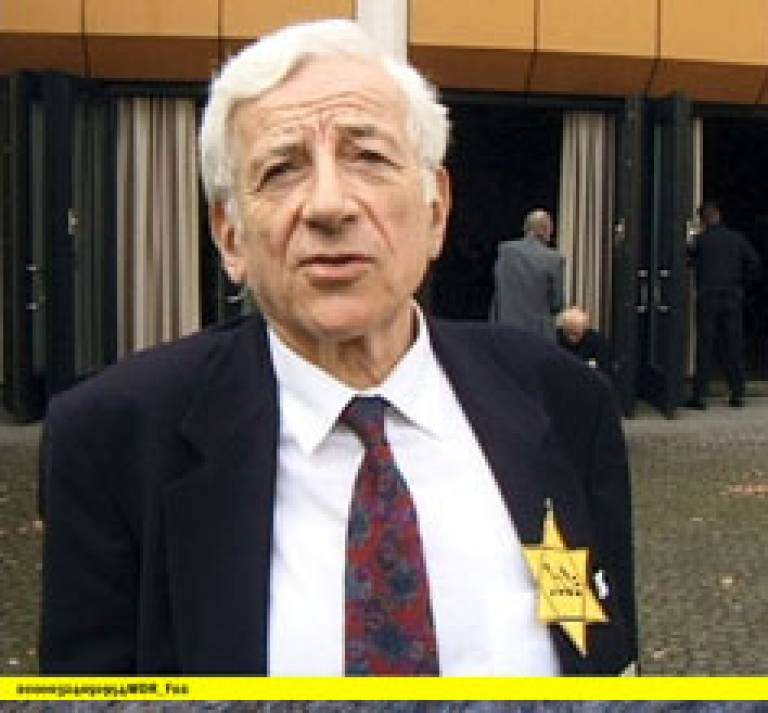European Film Salons - Portraying Perpetrators: I was a Slave Labourer
16 June 2014, 12:00 am

Event Information
Open to
- All
16 June 2014
Made for the BBC, arte-France and the Westdeutscher Rundfunk, this documentary is the inside story of an international campaign of former slave labourers, which director Luke Holland helped to initiate. The director will attend the screening.
|
When: Where: |
Rudy Kennedy. Still from the film "I Was a Slave Labourer" (1999). © WDR |
I was a Slave Labourer
(dir. Luke Holland, 74min, UK, 1999)
Made for the BBC's award-winning Storyville strand, arte-France and the
Westdeutscher Rundfunk, 'I Was a Slave Labourer' (74 minutes) is the inside
story of the international campaign, which Luke Holland helped to initiate,
and which ultimately secured $5 billion for over a million, former, forced
and slave labourers. Key protagonists in this dramatic yet intimate account,
are survivors and former slave labourers, Rudy Kennedy and Roman Halter. The
film, broadcast across Europe in the weeks preceding the final settlement,
is credited with contributing to the success of the campaign for belated
justice.
'I Was a Slave Labourer' has travelled internationally, including
screenings to mark Yom Hashoa in Israel; at The Imperial War Museum, London;
the Anne Frank Haus; the Jewish Museums of Paris and Berlin, in Prague, New
York and Taipei and twice at the Berlin Reichstag - on one occasion for MPs
and on another, to mark Germany's Holocaust Memorial Day.
Luke Holland will attend the screening to discuss the film and the
film-making, as well as his on-going engagement in the unfinished business
of the Third Reich.
- PDF Flyer
- For info, please contact Julia Wagner
Starting this academic year, the European Institute will be hosting a regular Film Salon. During these events, we will screen films produced in and with diverse topics of wider European relevance, in all genres. All screenings are free and will be followed by discussion.
The first season in our Salon Series is dedicated to films in documentary and experimental, semi-documentary formats engaging with the legacy of war. More concretely, the selected films focus not on victims but on perpetrators: on those who did not suffer but commit crimes during war and dictatorship, and the ways both their families and society at large are coming to terms with these acts across the generations.
 Close
Close

